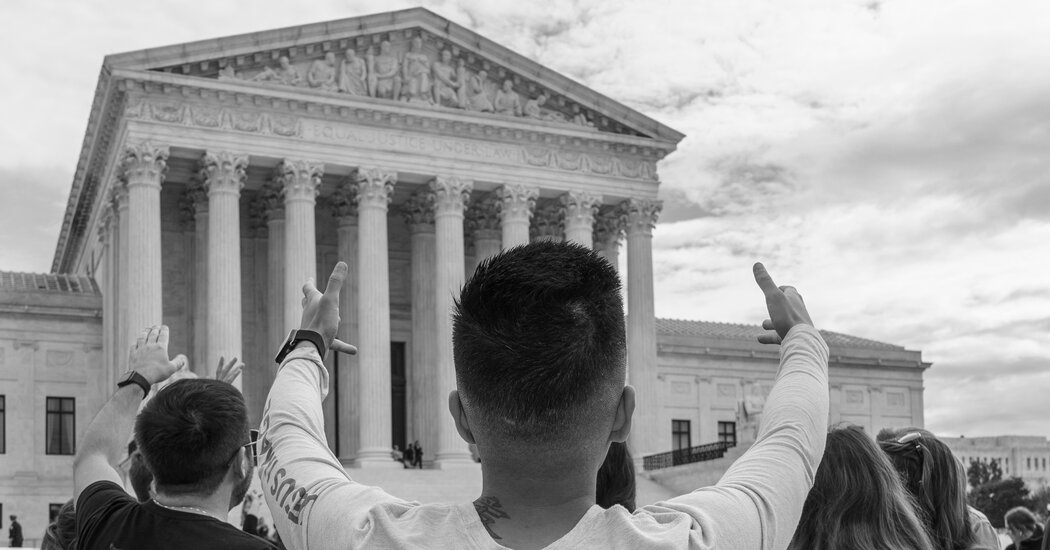Religiously based objections to laws like Colorado’s that mandate equal treatment in the commercial marketplace are nothing new. As Justice Sonia Sotomayor’s dissent made clear, these laws have been repeatedly challenged, including some based on an asserted First Amendment right to discriminate. For decades following the passage of the 1964 Civil Rights Act, the court was, in Justice Sotomayor’s words, “unwavering in its rejection of those claims.”
But those cases were decided before the ascent of the conservative supermajority’s boundless conception of the imperative to protect and accommodate the practice of religion in our public life. This court has sought to rearrange competing values — like pluralism, democracy and the mutual respect and tolerance both demand — around that imperative, no matter how much it may diminish them.
The 303 Creative opinion raises a question with possibly far-reaching implications: How will equal-treatment laws survive? The opinion’s lack of an obvious limiting principle — perhaps it encompasses just businesses whose goods or services can be described as expressive, although that’s certainly a large set — seems to suggest that many or most religiously grounded objections to public accommodations laws will be successful.
This could mean that same-sex couples wishing to exercise their constitutional right to marry would find themselves refused service by wedding vendors like bakers, photographers and calligraphers. And the license to discriminate may not stop there. What about birth announcements for the children of same-sex couples? Or entertainment at their birthday parties?
Nothing in the opinion limits its application to same-sex couples and their families. As Justice Sotomayor suggests, under the opinion’s reasoning, a school photo business could deny services to multiracial children on the grounds of an objection to interracial couples, or a corporate headshot business could refuse to photograph women on the basis of a belief that a woman’s place is in the home. If businesses choose to read this opinion broadly, its consequences for many Americans’ ability to obtain goods and services on equal terms could be staggering.
The court’s Groff opinion shows a different aspect of the trajectory of religious rights. It involved an evangelical Christian who for religious reasons did not wish to work on Sundays. When his employer, the Postal Service, began Sunday deliveries at his location, he initially sought and received a transfer. After his new office also began offering Sunday deliveries, the service initially tried to get other carriers to cover Mr. Groff’s deliveries, but he was ultimately disciplined and eventually resigned. He filed a lawsuit arguing that the service was required to do more to accommodate his Sunday Sabbath practice.
The case involved a provision of the 1964 Civil Rights Act that prohibits discrimination in employment on the basis of religion (along with race, color, sex and national origin). When it comes to how to balance the sincere religious beliefs of workers and the needs of a workplace, courts and the key federal employment agency had, until this decision, developed a set of tools that sought to balance the competing values at stake. Most sites of employment have workers with conflicting needs and obligations, involving their families, their health and their religious practices, among other things — and navigating to preserve productivity and also morale can be delicate.
In Groff, the court purported to “clarify” the 1977 Trans World Airlines v. Hardison opinion, which held that a religious accommodation at work was not required if it would impose a “substantial cost” on the employer; the Alito opinion explained that the Hardison formulation was insufficiently protective of religion. By elevating one set of needs — religious obligations — above all others, the court has undermined the ability of employers to respond to a diverse work force in ways that fairly account for different needs.
This content was originally published here.



Comments are closed, but trackbacks and pingbacks are open.